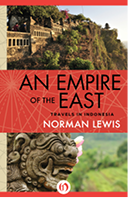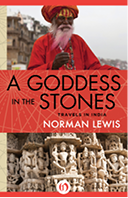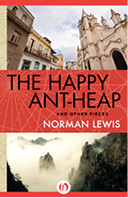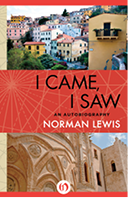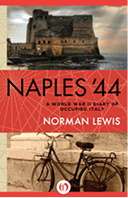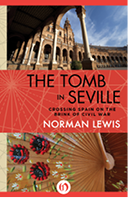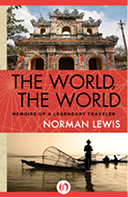Voyage By Dhow (24 page)
Authors: Norman Lewis

Thus gold had turned to paper, and what would once have been an audience dressed in the tribal splendour described by travellers of the past had become a crowd clad in mass-produced garments from Russian factories. How sad it seemed that these people who had designed and cultivated the first rose gardens of the world and built these overpowering mosques should now be obliged to turn their backs on colour and clothe themselves in the uniforms of a utilitarian world.
At the party I had met a native of Tashkent who had emigrated to the States and lived there for two years before his return. Since the building of Tashkent’s airport he had been employed by the region’s developing tourism industry, and his special responsibility was the opening up to the public of the Sholdava steppe—one of the great unexplored places of the world. I spoke to him at length about the project, and he was ready with a series of convincing replies.
‘You heard of the snowmobile?’ he asked. ‘We’re all set up to make snowmobiles for sand.’
‘What is there to see?’ I asked.
‘Pygmy sheeps,’ he said. ‘Same size as not big dog. You ever see pink rats? You gonna see them there. One mountain lion used to be around but now old. Maybe dead. Anyway no trouble.’ The sandmobile, he said, would follow the routes used by the horsemen of old. The great problem, of course, was that the steppe was in a perpetual state of change.
‘One day big hill, next day wind comes and is small hill. No tribes, only families. One husband, two wives. If a woman finds man to feed her she will marry that man. When no more food, she will go away.’
‘That is sensible,’ I said.
‘Not only one Sholdava,’ he went on, ‘are many steppe. The rulers live in highest places and food is brought to them. The Horse Princess comes also to all these places. If a ruler feeds her she may marry him for a short time. Then she will go.’
‘And someone else will feed her?’
‘That is why she is princess.’
‘If I provide the food would she marry me?’
‘Maybe you are not too much for her in some way, but I think that she will.’
My new friend promised to take me to see the steppe, and we set off together on a day-trip early the next morning. In the late afternoon we reached a small, ruined town, beyond which the steppe’s frontier of pale greenish gold shone in the distance, a glistening, emptied world forming a small corner of a forgotten universe.
I soon saw why my friend had found it almost impossible to write a tourist guide to the great steppe, for even as we studied the horizon through our binoculars the view changed.
‘You go look for mountain there yesterday, and that mountain is not there today,’ my friend repeated. ‘A week passes and nothing the same. If wind is OK comes smell of peaches, but then it changes, and you cover nose from smell of death.’
After the success of our excursion, it was decided that we should make a longer exploration of the steppe, but the next day my friend failed to appear. In his stead his representative arrived at the wheel of an old Ford V8 fitted with extra large wheels and oversized tyres. He was a pure Uzbek, small, dark and eager to please. Unfortunately, he was the possessor of the difficult name of Vloc, which sometimes produced a titter when I attempted its pronunciation. The sandmobile was not ready, he said, assuring me in a mixture of Russian and English that this was all to the good. ‘In Ford we get there,’ he explained, ‘in sandmobile, maybe.’ A brusque change in the weather accompanied the appearance of this unexpected form of transport. It had rained during the night for the first time in two months, and the sky was clotted with plum-coloured clouds.
A shapeless human form under the blanket covering the back seat caused a few moments of confusion. To my surprise, after the removal of the covers this shape became recognizable as the Horse Princess, and I now remembered some mention at the time of the chairman’s party of her forthcoming visit ‘to my steppe’. The change in her appearance was remarkable. She was wrapped in the unflattering garments of a working woman. Gone were the bangles and necklaces, and the shadowed eyelids were no more. But, above all, I was astonished to see that no trace of the vulgar paint-assisted fairground good looks of two days before remained. They had been replaced by an air of unmistakable intelligence. I felt a certain relief that Natasha had declined to accompany me.
We were headed, I was told, for the village where the Princess had been born. ‘They call it a village,’ Vloc said, ‘but there are only four or five huts, with more horses than humans living in them.’ While we were discussing our prospects a rent appeared in the sky’s grey covering, rain poured down and almost instantly smoke began to rise from the sand. It would dry, Vloc said, in a matter of hours—especially close to the hills where the drainage was good. As we had come to a halt, he broke out the food he had brought in case of emergencies—in that part of the world they fell back on edible worms in times of shortage—and he showed me the offerings he proposed to place in front of the horse shrines should we receive a hospitable welcome at our destination.
The rain soon stopped and we reached the village well before dark. A tiny man came out of a hut. Black hair fell to his shoulders and he was without front teeth. ‘Bow to the shrine,’ he said, and the Princess took us behind the hut to a mound under which the horses were buried, and I made my obeisance.
‘They passed a law making us Christians,’ Vloc explained, ‘but when one of us dies a note goes into his grave saying that he refuses to be resurrected. If there’s no way out of it we ask to be resurrected as horses.’
Next day he offered me a tiny pony to accompany him on a visit to areas which were out of reach by car. ‘They pray to horses there,’ he added as an inducement, ‘and hang flowers round their necks.’ My stallion in miniature threw me as soon as I mounted it. ‘It must be the smell he can’t stand,’ Vloc said. ‘We could rub you down with salt. That might do the trick.’
The salt was then applied, but with little success, for mounting under Vloc’s supervision the most docile of his ponies, I held on for only a few yards before being thrown over its head. Thereafter we trudged through squelching sand to a neighbouring village where garlanded horses were indeed in view. This may have been the steppe’s first attempt at transforming an authentic folk ceremony into a tourist attraction. On our arrival, young Uzbeks had been sent scurrying off into the dunes for flowers; a little while later a few returned bearing long trailers of what might have been a coarse and bedraggled version of convolvulus. While Vloc mumbled what he said was a prayer, the villagers hung the resulting garland round a horse’s neck, after which it was removed and given to the animal to eat.
Vloc had spent much of his childhood on the steppe, but he admitted that he no longer wished to stay here more than a few days—nowadays, he claimed, he was dependent on Russian food, not to be had in these backward places. When deprived of Russian bread in particular, he said, he began to feel weak after three days. The villagers had recently announced a godsend, in the form of a swarm of large edible flies, and the pessimism with which he received this erstwhile good news only served to emphasize the gap between his present state and his past.
Vloc clearly took (or pretended to take) the edible flies incident as an omen that we should depart, but, I asked, what was to be done about the Horse Princess? Was she staying on the steppe, or did she intend to return with us? Vloc said that he did not know her intentions, or whether arrangements should be made on her behalf. When he finally thought of asking the Princess herself, she replied that she would stay. She had returned to her people, after an absence of many months, to count the number of her tribe, she said. She was pleased to announce that this had increased by one. But she was worried about her horses. The Uzbeks could not be relied upon to deal with numbers, she was sorry to say, and she had come above all to be sure that the number of animals was not on the decrease.
I returned to Tashkent, where Natasha was waiting for me at the hotel. As I walked through the door nothing moved in the calm of that serene Slavic countenance. ‘Lucky you got in early,’ she said. ‘There’s been a plane cancellation and we have to take off tomorrow.’
‘Couldn’t be better,’ I said.
‘How about the steppe?’ she asked. ‘Did you enjoy it?’
‘I did. You’d have enjoyed it, too.’
‘I’ll phone Valentina straight away,’ she said. ‘She’ll be delighted. So it was a success in every way?’
‘It was a totally new experience,’ I explained, ‘and an immense surprise. Did you manage to amuse yourself in Samarkand while I was away?’
‘I visited more rose gardens, then Vilanski drove me here,’ Natasha said. ‘This is one of those quiet places where news soon gets round. They tell me the Horse Princess is back on the steppe.’
‘She was. I saw her; in fact I travelled with her. But not for long. She was on the move.’
‘Did they go in for a great deal of dancing wherever it was that you went?’ Natasha asked.
‘No, because it’s no more than the simplest of existences. The Horse Princess dances in the towns and puts the money to good use on the steppe. There they call her the teacher.’
‘And what does she teach?’
‘How to care for spider bites, calm lunatics and keep out the sand.’
Natasha nodded her agreement. ‘And what could be better?’
‘Another thing she teaches,’ I said, ‘and out there on the steppe it’s the most important thing of all, is resignation. I told you about the prison ship and the Uzbeks who were going to be shot? They knew it would happen, but they didn’t seem depressed in the slightest. They kept up their laughter and joking all the time. It was just about the only laughter you heard on that ship.’
‘It’s the old Muslim thing, I suppose,’ Natasha said. ‘Put up with it. It is written.’
‘I often wonder what happened to them. Do you imagine Valentina might be able to find out?’
‘I’m sure she’ll try if you ask her. Anyway, we’ll see her tomorrow. She’s certain to be at the airport to meet the plane.’
2001
Norman Lewis (1908–2003) was one of the greatest English-language travel writers. He was the author of thirteen novels and fourteen works of nonfiction, including
Naples ’44
,
The Tomb in Seville
, and
Voices of the Old Sea
. Lewis served in the Allied occupation of Italy during World War II, and reported from Mafia-ruled Sicily and Vietnam under French-colonial rule, among other locations. Born in England, he traveled extensively, living in places including London, Wales, Nicaragua, a Spanish fishing village, and the countryside near Rome.
All rights reserved under International and Pan-American Copyright Conventions. By payment of the required fees, you have been granted the non-exclusive, non-transferable right to access and read the text of this ebook onscreen. No part of this text may be reproduced, transmitted, downloaded, decompiled, reverse engineered, or stored in or introduced into any information storage and retrieval system, in any form or by any means, whether electronic or mechanical, now known or hereinafter invented, without the express written permission of the publisher.
Copyright © 2001 by Norman Lewis
Cover design by Kelly Parr
978-1-4804-3335-9
This edition published in 2013 by Open Road Integrated Media
345 Hudson Street
New York, NY 10014

